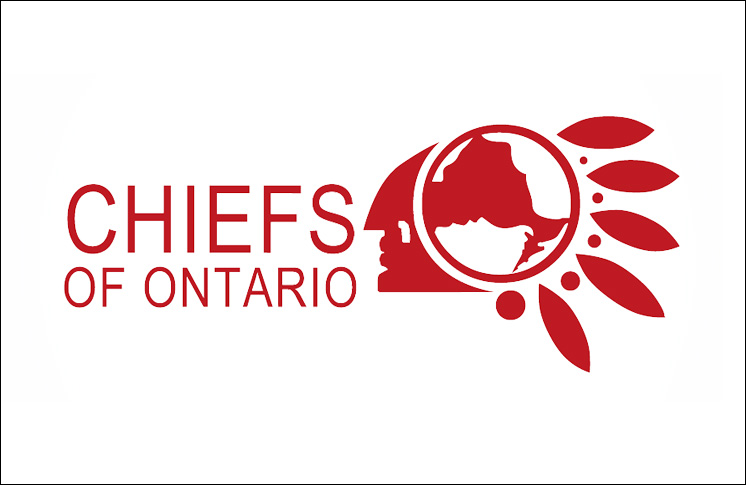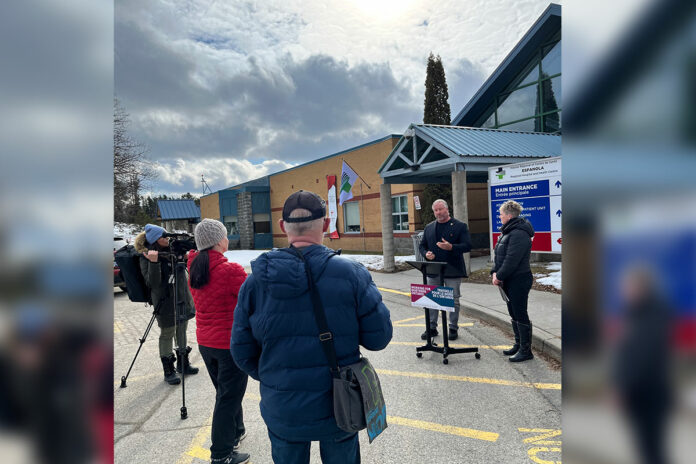MANITOULIN—Local health and provincial government representatives all agree that the announcement by Prime Minister Justin Trudeau and Ontario Premier Doug Ford of a $3.1 billion agreement in funding toward healthcare to cut patient wait times and deliver better health care is good news, but everyone is cautious to wait and see the details.
Prime Minister Trudeau, along with Ontario Premier Doug Ford announced a new $3.1 billion agreement last Friday to improve healthcare in Ontario. This investment is intended to help increase access to family doctors, reduce wait times, hire more health care workers and ensure faster care for Canadians, including mental health care.
“It’s exciting news,” said Dr. Maurianne Reade, president of professional staff for Manitoulin Health Centre (MHC). “I’m interested to see more information on the increase in the number of health providers in the province. It still represents a lot of work and time for faculty at medical and nursing university programs training medical students to build and expand enough so that we have the work force that is so desperately needed.”
Dr. Steven Cooper, who is a member of Ontario Health said, “happy for sure with the announcement. Definitely, we are short both doctors and nurses on Manitoulin, but it will be a while before we see these increases in staffing, although the program to bring trained physicians from other countries who are not yet licenced in Canada might help.” He pointed out that it can take about six years before physician and nursing students complete their university education and are working on the front lines.
“Every dollar announced will benefit the people of Ontario, so that is good news,” said Michael Mantha, MPP for Algoma-Manitoulin. “The key to me is what is going to be announced in the upcoming provincial budget. If there is nothing to increase base funding for hospitals, and to curtail the extreme costs that hospital and long-term homes are facing with the cost of having to get agency nurses to fill gaps who are paid three times more than nurses in these hospitals and long-term care facilities, this will not be positive.”
“I welcome the announcement that has been made, but I am cautiously optimistic and want to see the details on how this is going to benefit hospitals and long-term care homes,” said MPP Mantha. “The province has a habitat of making these lavish funding announcements, and then later we find out they have been sitting on the funding when they should be put into health care, roads, infrastructure and other things needed in communities in Ontario. I give them credit when credit is due, such as this announcement, but let’s wait and see all the details first.”
Premier Ford said, “this new 10-year agreement will help support our ongoing work in Ontario to connect more people to convenient care close to home. Right across the province we’re making historic investments in health care to build more hospitals, bring on more doctors and nurses, expand home and community care and reduce wait times. We look forward to continuing to work with our federal partners to ensure Ontarians get the health care they need and deserve.”
“Canadians value our universal public health care system, but recently this system has not been living up to its promise,” said Prime Minister Trudeau. “That’s why we’re signing agreements with provinces and territories to help ensure Canadians can access reliable, timely and safe health care. Today’s agreement with Ontario will increase access to family doctors, reduce backlogs, increase the workforce and make the health care system work better. Let’s give Canadians the quality health care they expect and deserve.”
Sylvia Jones, Ontario’s minister of health said, “Ontario is making historic investments to help improve the patient experience through ‘Your Health: A Plan for Connected and Convenient Care.’ As we continue to put our bold plan into action, today’s agreement will complement our ongoing work to ensuring Ontarians have unparalleled access to convenient care in their communities, no matter where they live.”
The Ontario Hospital Association (OHA) congratulated the prime minister and premier on signing the agreement. “Over time, this agreement will facilitate the creation of new health services capacity and capability, help ensure reduced unnecessary reliance on acute care hospitals and ensure more people have access to care in the right setting,” said Anthony Dale, president and chief executive officer of the OHA. “The OHA is grateful for the renewed support from both the federal and provincial government in targeting key gaps in the health system such as wait times, access to primary care and staffing pressure. The announcement comes at a time when continued partnerships and investments in all areas of healthcare services are needed to allow care to be delivered in the most appropriate setting and in the most cost-effective manner.”
The Ontario Nurses Association (ONA) also welcomed the news to provide funding but added that they have no faith that the Ford government will direct the funds to where they are most needed, to invest in the public system, not the for-profit, private corporations.
“Nurses welcome new federal funding for healthcare in Ontario, which is desperately needed in our public healthcare system,” said ONA president Erin Ariss, RN. “Yet the brutal truth is that our provincial government has withheld existing funds for the public system Ontarians treasure. Mr. Ford has failed to retain nurses and handed taxpayer dollars to private, for-profit corporations to perform non-urgent procedures. Where is the requirement that federal taxpayer dollars go to the public system in this agreement? The federal government and Ontarians must demand accountability from the province.”
Ms. Ariss added that despite the repeated, misleading statements made by health minister Sylvia Jones that Ontario added 80,000 new nurses, Ontario continues to have the fewest RNs per capita in Canada. “Nurses must renew their registrations annually,” she said. “If we have so many new nurses, why is it that Ontario is seeing hundreds of emergency departments continuing to have to close due to nurse staffing shortages?”
“The premier spoke glowingly about getting shovels in the ground and clinics performing procedures, all of which fails to improve what’s happening across the province when it comes to access to the system our patients need and deserve,” continued Ms. Ariss. “ONA will continue to speak out and demand real accountability and improvements to the public system.”
Under the agreement, Ontario will continue to deliver on its ‘Your Health: A Plan for Connected and Convenient Care’ and create new primary care teams to help more people connect to family doctors. With more family doctors, as well as nurse practitioners, nurses, pharmacists and social workers, health teams will ensure families can access timely, quality primary care. This will also help reduce backlogs for surgeries and wait times in emergency rooms while improving access to care for patients without a family doctor, especially in rural, remote and underserved areas.
To fill healthcare shortages, Ontario will add hundreds of new family physicians and nurse practitioners, as well as thousands of new nurses and personal support workers. Enrollment in healthcare education programs will be expanded by over 700 spots, including over 70 in Northern Ontario. To keep building the talent for the future, Ontario will support students with tuition fees, help practicing professionals gain new skills and bring more health workers into the field.
The agreement will also make it easier for Canadian and internationally trained doctors and health professionals to practice in Ontario, so they spend less time dealing with red tape and more time helping patients in need. This includes removing barriers to foreign credential recognition, simplifying licencing processes and increasing program access for highly educated and skilled health professionals. The province will modernize digital infrastructure, from information reporting, to collection, to sharing. By expanding the availability of electronic health information and increasing the number of health care professionals who can securely access and share this information healthcare will be more convenient, connected,and patient-centred.
Mental health is a central pillar of this important investment, it was announced. Ontario will add five new Youth Wellness Hubs to the 22 that opened since 2020, making it faster and easier for youth to connect to much needed mental health and substance use services in rural, remote and Indigenous communities.
The federal and provincial governments will engage and work with Indigenous peoples to address gaps and systemic inequities in Indigenous healthcare services and improve access to culturally safe care. Under the agreement, funds will go to Ontario’s Support for Indian Residential Schools Burials Funding program, which provides culturally safe mental health supports to survivors of residential schools, families and communities. As we move forward on the shared path of reconciliation, safe and timely healthcare is a priority for Indigenous communities, the release adds.





